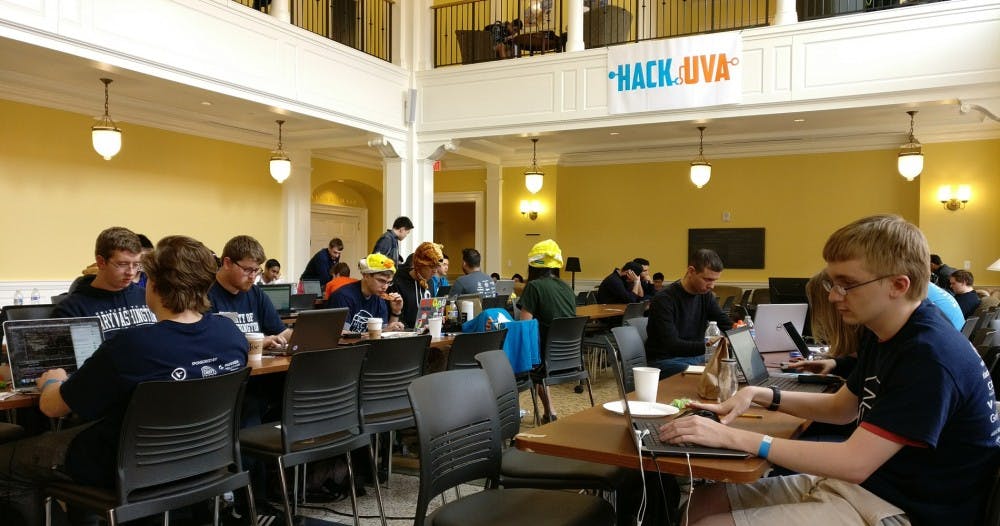The University hosted Hack.UVA, its fourth annual Major League Hackathon, on March 25-26. A top prize of $1,000 was given out to fourth-year Engineering student Nipun Singh and Naman Singh, who is a senior at Westfield High School.
The team made Draw Platform, which is a game where users can draw the platform for a simple game on a paper, take a picture of it on their phone and upload it to a website. Then, using computer vision that game would render on the screen that the users can then play.
The prizes were handed out after students spent 24 straight hours programming to build and develop web or mobile application platforms from scratch.
This year, around 350 students interested in programming registered for the event. Most of the participating students were computer science or engineering majors, but the event also attracted other majors throughout the University interested in programming as a hobby.
Students from Virginia Commonwealth University, James Madison University, Virginia Tech and College of William and Mary also participated in the hackathon.
Hacking began at 2:30 p.m. on Saturday, March 25, and the Hackathon ran through to Sunday, March 26, concluding with the announcement of hackathon winners at 5:00 p.m.
Anthony Uitz, a fourth-year Engineering and College student on the Hack.UVA organizing team said the quality of the hacks has increased.
“In recent years, we have focused more on fostering the University of Virginia maker and entrepreneurial community,” Uitz said. “While this has resulted in a slight shrinkage of attendance, the quality of the hacks and the overall smoothness of the experience has increased.”
First-year Engineering student Renee Mitchell was among the students participating in the hack. She along with two other first-year teammates worked on building a better version of Hereford Residential College’s student senate website.
Mitchell’s team undertook this project to include more interactive features and tools on the college’s website, and to make it more aesthetically pleasing.
The Hackathon was organized by the Engineering Student Council, in partnership with Major League Hacking and Hackerearth.
Major League Hacking representative Shy Ruparel said that although the University had reached out to MLH for help organizing the Hackathon, the event was entirely student run.
“I am just here to provide behind the scenes support and help where it is needed,” Ruparel said. MLH also provided hardware for students, such as virtual reality glasses.
Arnim Jain, a third-year Engineering student and one of the event’s organizers, said the purpose was to give students an opportunity to create.
“We wanted to give students a creative and dedicated time to pursue any ideas that in the past that they have wanted to build,” Jain said. “The best part of Hack.UVA is the collaborative space.”
Rohan Raval, a second-year Engineering student who is on the executive board of Hack.UVA, said they’re hoping to expand in coming years.
“The event has grown in the past few years but it's been hard to scale, so we hope to get a better venue next year so we grow it to many more people,” Raval said.
Uitz said hacks in the past have ranged from a levitating magnetic speaker system to an automated bartender.
“As per every year, we hope all the participants feel like they have grown as entrepreneurs and makers, as well as have some top quality hacks and happy sponsors,” Uitz said.
Correction: The headline previously misstated the event was the third annual major league hackathon. It is the fourth annual hackathon.







